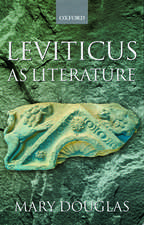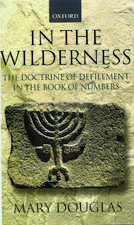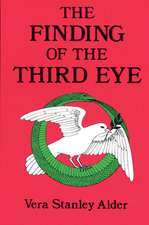"No Longer Male and Female": Interpreting Galatians 3:28 in Early Christianity: The Library of New Testament Studies
Autor Dr Pauline Hoganen Limba Engleză Hardback – 26 mar 2008
Galatians 3:28, in particular the phrase, "There is ...no longer male and female; for you all are one in Christ Jesus," would seem to point towards an ethos of gender equality among Christians. Acting on this assumption, a number of scholars have considered the phrase significant in reconstructing attitudes towards women in early Christianity. Until now, however, a study of the history of interpretation of Gal 3:28 has been lacking. The exploration of the post-New Testament career of the verse is therefore the focus of this book. The approach is historical-critical, discussing the exegesis of Gal 3:28 in the context of attitudes about the roles of women in the first four centuries CE.This study reveals that early Christians did not always approach this verse with the same concerns as modern readers. Ancient commentators brought several different questions to their discussion of Gal 3:28, and it is impossible to discover the trajectory in exegesis of this verse that might have been expected. It becomes apparent that during the first four centuries of Christianity most writers treated Gal 3:28 as a statement about the identification of Christians with Christ and therefore an indication that in the resolution of various differences into unity, they could achieve an ideal state. While some writers applied this concept to status differences between men and women, others used it to discuss the qualities of the ideal disciple, the character of the first created human beings, the state of the believer in heaven, and even the nature of God.
Din seria The Library of New Testament Studies
- 34%
 Preț: 509.52 lei
Preț: 509.52 lei - 22%
 Preț: 832.58 lei
Preț: 832.58 lei - 22%
 Preț: 832.09 lei
Preț: 832.09 lei - 24%
 Preț: 190.33 lei
Preț: 190.33 lei - 22%
 Preț: 832.65 lei
Preț: 832.65 lei - 23%
 Preț: 191.31 lei
Preț: 191.31 lei -
 Preț: 221.70 lei
Preț: 221.70 lei -
 Preț: 98.92 lei
Preț: 98.92 lei - 31%
 Preț: 830.87 lei
Preț: 830.87 lei - 22%
 Preț: 834.60 lei
Preț: 834.60 lei - 22%
 Preț: 831.59 lei
Preț: 831.59 lei - 30%
 Preț: 717.05 lei
Preț: 717.05 lei - 22%
 Preț: 835.03 lei
Preț: 835.03 lei - 30%
 Preț: 511.40 lei
Preț: 511.40 lei - 24%
 Preț: 190.33 lei
Preț: 190.33 lei -
 Preț: 158.77 lei
Preț: 158.77 lei - 30%
 Preț: 510.04 lei
Preț: 510.04 lei - 22%
 Preț: 832.99 lei
Preț: 832.99 lei - 30%
 Preț: 509.52 lei
Preț: 509.52 lei - 22%
 Preț: 832.80 lei
Preț: 832.80 lei - 22%
 Preț: 831.76 lei
Preț: 831.76 lei - 22%
 Preț: 834.93 lei
Preț: 834.93 lei - 22%
 Preț: 831.59 lei
Preț: 831.59 lei - 22%
 Preț: 832.41 lei
Preț: 832.41 lei - 22%
 Preț: 832.99 lei
Preț: 832.99 lei -
 Preț: 414.71 lei
Preț: 414.71 lei - 30%
 Preț: 773.65 lei
Preț: 773.65 lei - 22%
 Preț: 834.93 lei
Preț: 834.93 lei - 14%
 Preț: 511.81 lei
Preț: 511.81 lei -
 Preț: 222.16 lei
Preț: 222.16 lei - 30%
 Preț: 775.67 lei
Preț: 775.67 lei - 30%
 Preț: 1012.49 lei
Preț: 1012.49 lei - 30%
 Preț: 509.02 lei
Preț: 509.02 lei - 30%
 Preț: 656.90 lei
Preț: 656.90 lei -
 Preț: 469.92 lei
Preț: 469.92 lei -
 Preț: 471.68 lei
Preț: 471.68 lei -
 Preț: 173.21 lei
Preț: 173.21 lei - 30%
 Preț: 833.64 lei
Preț: 833.64 lei - 22%
 Preț: 834.93 lei
Preț: 834.93 lei - 31%
 Preț: 772.17 lei
Preț: 772.17 lei - 30%
 Preț: 774.20 lei
Preț: 774.20 lei - 14%
 Preț: 1124.92 lei
Preț: 1124.92 lei - 22%
 Preț: 948.51 lei
Preț: 948.51 lei - 14%
 Preț: 1128.84 lei
Preț: 1128.84 lei - 31%
 Preț: 1065.91 lei
Preț: 1065.91 lei - 22%
 Preț: 777.71 lei
Preț: 777.71 lei - 31%
 Preț: 1064.84 lei
Preț: 1064.84 lei - 22%
 Preț: 1063.44 lei
Preț: 1063.44 lei - 22%
 Preț: 889.49 lei
Preț: 889.49 lei - 22%
 Preț: 1006.06 lei
Preț: 1006.06 lei
Preț: 1007.53 lei
Preț vechi: 1291.88 lei
-22% Nou
Puncte Express: 1511
Preț estimativ în valută:
192.78€ • 201.30$ • 159.20£
192.78€ • 201.30$ • 159.20£
Carte tipărită la comandă
Livrare economică 15-29 aprilie
Preluare comenzi: 021 569.72.76
Specificații
ISBN-13: 9780567033352
ISBN-10: 056703335X
Pagini: 240
Dimensiuni: 156 x 234 x 14 mm
Greutate: 0.52 kg
Ediția:New.
Editura: Bloomsbury Publishing
Colecția T&T Clark
Seria The Library of New Testament Studies
Locul publicării:London, United Kingdom
ISBN-10: 056703335X
Pagini: 240
Dimensiuni: 156 x 234 x 14 mm
Greutate: 0.52 kg
Ediția:New.
Editura: Bloomsbury Publishing
Colecția T&T Clark
Seria The Library of New Testament Studies
Locul publicării:London, United Kingdom
Caracteristici
Discusses the public and ecclesial roles of Greco-Roman women, to enhance the readers' understanding of the background of New Testament writings.
Cuprins
1. Introduction: A brief survey of recent scholarship on Gal 3:28 and discussion of the methodology of this book.
2. "No Longer Male and Female" According to Paul: An examination of Gal 3:27-28, 1 Cor 11:2-16, 12:12-13, and 14:34-35, Philemon, and Rom 16, in an attempt to determine how Paul understood "no longer male and female."
3. "No Longer Male and Female": The Discussion Post-Paul Through the Second Century: An examination of post-Pauline New Testament literature, including Col 3:9-11 and 1 Tim 2:11-15, as well as other non-canonical Christian and secular literature of the late first, second, and early third century.
4. Gal 3:28 in Patristic Literature of the Third Century: A study of commentary on Gal 3:28 in the writings of Clement of Alexandria, Origen, and Tertullian.
5. Gal 3:28 and the Image of God in Cappadocian Thought of the Fourth Century: The three Cappadocian Fathers, Basil of Caesarea, Gregory of Nazianzus, and Gregory of Nyssa, all understand Gal 3:28 to be a commentary on Gen 1:27. Each, however, had his own distinctive interpretation.
6. Gal 3:28 and the Empire in the Fourth Century: Many fourth-century Christian writers saw Gal 3:28 as a comment on the triumph of Christianity in the Roman empire. This chapter focuses on Ambrose, and also examines the work of Eusebius, Epiphanius, and Jerome.
7. Conclusion: There is very little evidence to support the argument that early Christians saw Gal 3:28 as an expression of an egalitarian self-understanding. Rather, the common thread in early Christian exegesis of Gal 3:28 seems to be an emphasis on Christian perfection.
2. "No Longer Male and Female" According to Paul: An examination of Gal 3:27-28, 1 Cor 11:2-16, 12:12-13, and 14:34-35, Philemon, and Rom 16, in an attempt to determine how Paul understood "no longer male and female."
3. "No Longer Male and Female": The Discussion Post-Paul Through the Second Century: An examination of post-Pauline New Testament literature, including Col 3:9-11 and 1 Tim 2:11-15, as well as other non-canonical Christian and secular literature of the late first, second, and early third century.
4. Gal 3:28 in Patristic Literature of the Third Century: A study of commentary on Gal 3:28 in the writings of Clement of Alexandria, Origen, and Tertullian.
5. Gal 3:28 and the Image of God in Cappadocian Thought of the Fourth Century: The three Cappadocian Fathers, Basil of Caesarea, Gregory of Nazianzus, and Gregory of Nyssa, all understand Gal 3:28 to be a commentary on Gen 1:27. Each, however, had his own distinctive interpretation.
6. Gal 3:28 and the Empire in the Fourth Century: Many fourth-century Christian writers saw Gal 3:28 as a comment on the triumph of Christianity in the Roman empire. This chapter focuses on Ambrose, and also examines the work of Eusebius, Epiphanius, and Jerome.
7. Conclusion: There is very little evidence to support the argument that early Christians saw Gal 3:28 as an expression of an egalitarian self-understanding. Rather, the common thread in early Christian exegesis of Gal 3:28 seems to be an emphasis on Christian perfection.
Recenzii
Mention -New Testament Abstracts, Vol. 53 No. 1, 2009
Mention - International Review of Biblical Studies, vol. 54:2007/08
"Hogan's work provides an extensive list of citations of Gal. 3.28 which will be useful to scholars researching the roles of women in the early church." Journal for the Study of the New Testament Booklist 2009
Mention - International Review of Biblical Studies, vol. 54:2007/08
"Hogan's work provides an extensive list of citations of Gal. 3.28 which will be useful to scholars researching the roles of women in the early church." Journal for the Study of the New Testament Booklist 2009








